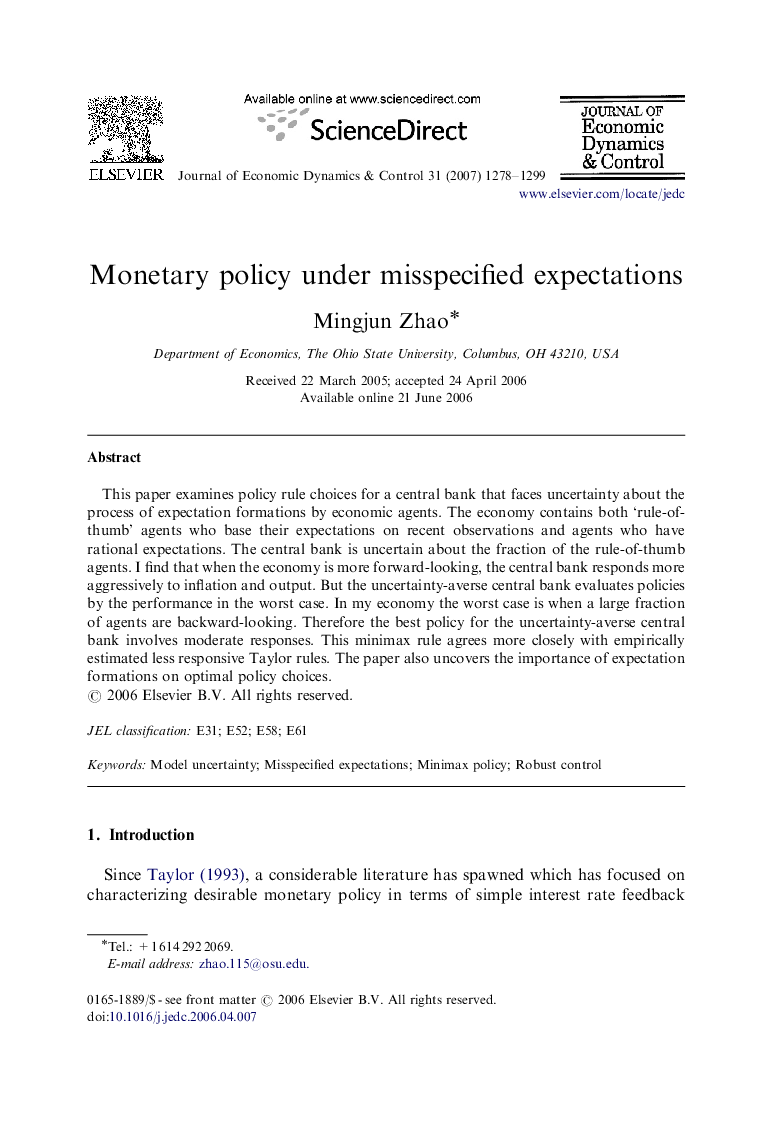| Article ID | Journal | Published Year | Pages | File Type |
|---|---|---|---|---|
| 5099619 | Journal of Economic Dynamics and Control | 2007 | 22 Pages |
Abstract
This paper examines policy rule choices for a central bank that faces uncertainty about the process of expectation formations by economic agents. The economy contains both 'rule-of-thumb' agents who base their expectations on recent observations and agents who have rational expectations. The central bank is uncertain about the fraction of the rule-of-thumb agents. I find that when the economy is more forward-looking, the central bank responds more aggressively to inflation and output. But the uncertainty-averse central bank evaluates policies by the performance in the worst case. In my economy the worst case is when a large fraction of agents are backward-looking. Therefore the best policy for the uncertainty-averse central bank involves moderate responses. This minimax rule agrees more closely with empirically estimated less responsive Taylor rules. The paper also uncovers the importance of expectation formations on optimal policy choices.
Related Topics
Physical Sciences and Engineering
Mathematics
Control and Optimization
Authors
Mingjun Zhao,
